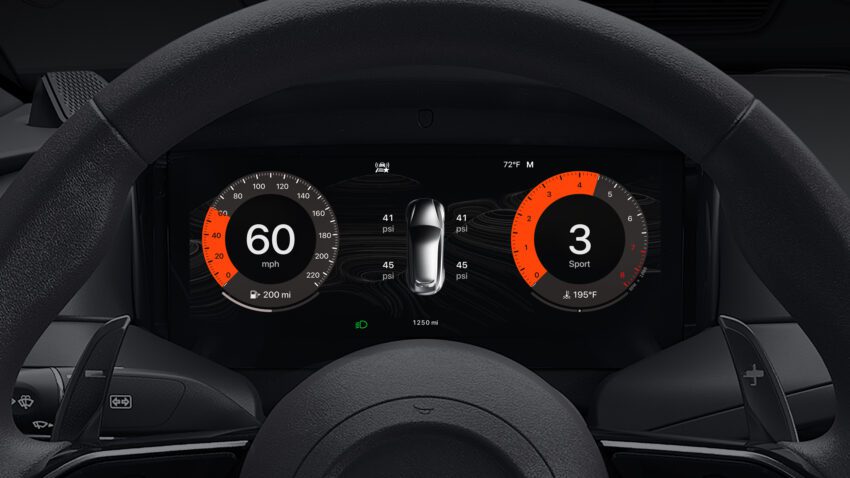
ford s ceo isn t impressed with Ford CEO Jim Farley has expressed skepticism regarding Apple’s latest iteration of CarPlay, known as CarPlay Ultra, indicating a cautious approach to its integration into Ford vehicles.
ford s ceo isn t impressed with
Apple CarPlay Ultra: An Overview
Launched earlier this year, Apple CarPlay Ultra aims to revolutionize the in-car experience by providing deeper integration with vehicle systems. This upgraded version allows for multiple screens to display CarPlay simultaneously, enabling users to manage various functions such as climate controls and drive modes directly through the CarPlay interface. The initial rollout featured models from luxury automaker Aston Martin, with Porsche expected to follow suit shortly.
Despite the promising features of CarPlay Ultra, the response from the automotive industry has been mixed. Several automakers are taking a cautious stance, with concerns about Apple’s intentions to dominate vehicle functionalities. This hesitance is underscored by Farley’s recent comments during an interview on the Decoder podcast, where he articulated his reservations about the first iteration of CarPlay Ultra.
Ford’s Cautious Approach
In his interview, Farley emphasized that Ford is not outright rejecting the idea of integrating CarPlay Ultra into its vehicles but is instead seeking clarity on how the system would interact with essential vehicle functions. “We don’t like the execution in round one of Ultra, but we’re very committed to Apple,” he stated, highlighting ongoing discussions with Apple CEO Tim Cook regarding the platform.
Concerns Over Control
One of Farley’s primary concerns revolves around the extent to which Apple would control critical vehicle functions. He posed a series of questions that reflect his apprehension: “How far do you want the Apple brand to go? Do you want the Apple brand to start the car? Do you want the Apple brand to limit the speed? Do you want the Apple brand to limit access?” These inquiries underscore a fundamental concern among automakers regarding the balance of control between vehicle manufacturers and tech companies.
Farley pointed out that Ford Pro, the company’s commercial vehicle division, currently utilizes enterprise software to manage fleet operations, including tracking vehicle locations and controlling driver access. He expressed a strong desire for Ford to maintain control over such functionalities, indicating that if Apple were to seek control over these aspects through CarPlay Ultra, it could lead to complications. “If Apple wants to do that, I think we’re going to have a tough time with that, because then the digital experience gets really messy,” he remarked.
The Digital Experience Dilemma
Farley’s comments reflect a broader industry concern about the evolving relationship between automakers and technology companies. As vehicles become increasingly digitized, the lines between automotive and tech ecosystems blur, raising questions about user experience and control. Ford is committed to consumer choice, and Farley made it clear that the company has no plans to restrict access to CarPlay or Android Auto, both now and in the future.
Enhancing User Experience
Ford’s new Digital Experience initiative aims to enhance the phone mirroring experience, allowing customers to maximize CarPlay to fill the entire screen. This approach contrasts sharply with General Motors’ controversial decision to block access to phone projection services in its electric vehicle lineup. GM argued that this move would provide a superior software experience, but customer feedback indicated a strong preference for the digital experiences they are accustomed to on their smartphones.
Farley emphasized Ford’s commitment to honoring customer preferences by avoiding unnecessary barriers between users and their preferred digital experiences. “We don’t think we should restrict that to make money off the customers,” he stated. This philosophy aligns with Ford’s broader strategy of prioritizing customer satisfaction and convenience in an increasingly competitive automotive landscape.
Industry Reactions and Implications
Farley’s skepticism is not an isolated sentiment within the automotive industry. Other executives, such as Mercedes-Benz CEO Ola Källenius, have voiced similar concerns regarding Apple’s ambitions in the automotive space. Källenius previously expressed apprehension about the potential for tech companies to overreach in their control over vehicle functionalities, echoing Farley’s sentiments about the need for clarity and balance in the relationship between automakers and tech giants.
The growing unease among automakers regarding Apple’s intentions raises important questions about the future of in-car technology. As vehicles become more connected and integrated with digital ecosystems, the balance of power between traditional automakers and tech companies will likely continue to evolve. This dynamic could lead to a rethinking of how vehicles are designed, marketed, and experienced by consumers.
Consumer Preferences and Market Trends
Consumer preferences play a crucial role in shaping the direction of in-car technology. As Farley noted, customers overwhelmingly prefer the digital experiences offered by their smartphones over those provided by their vehicles. This trend highlights the importance of seamless integration between mobile devices and in-car systems, as consumers increasingly expect their vehicles to enhance rather than complicate their digital lives.
Ford’s approach to maintaining compatibility with popular platforms like CarPlay and Android Auto reflects an understanding of these consumer preferences. By prioritizing user experience and avoiding restrictions, Ford aims to position itself favorably in a market where connectivity and digital integration are becoming key differentiators.
The Road Ahead
As the automotive industry continues to navigate the complexities of digital integration, the relationship between automakers and tech companies will remain a focal point of discussion. Ford’s cautious stance on CarPlay Ultra serves as a reminder of the challenges that lie ahead as companies seek to balance innovation with consumer control and safety.
Looking forward, it will be essential for automakers to engage in open dialogue with tech companies to establish clear boundaries regarding control and functionality. The future of in-car technology will likely depend on collaborative efforts that prioritize user experience while ensuring that automakers retain control over critical vehicle functions.
Conclusion
In summary, Ford CEO Jim Farley’s cautious approach to Apple CarPlay Ultra reflects broader concerns within the automotive industry regarding the balance of power between traditional automakers and tech companies. As Apple continues to expand its influence in the automotive space, it will be crucial for automakers to maintain clarity and control over essential vehicle functions while prioritizing consumer preferences. The evolving landscape of in-car technology presents both challenges and opportunities, and how automakers navigate these complexities will shape the future of the industry.
Source: Original report
Was this helpful?
Last Modified: September 29, 2025 at 7:39 pm
2 views














